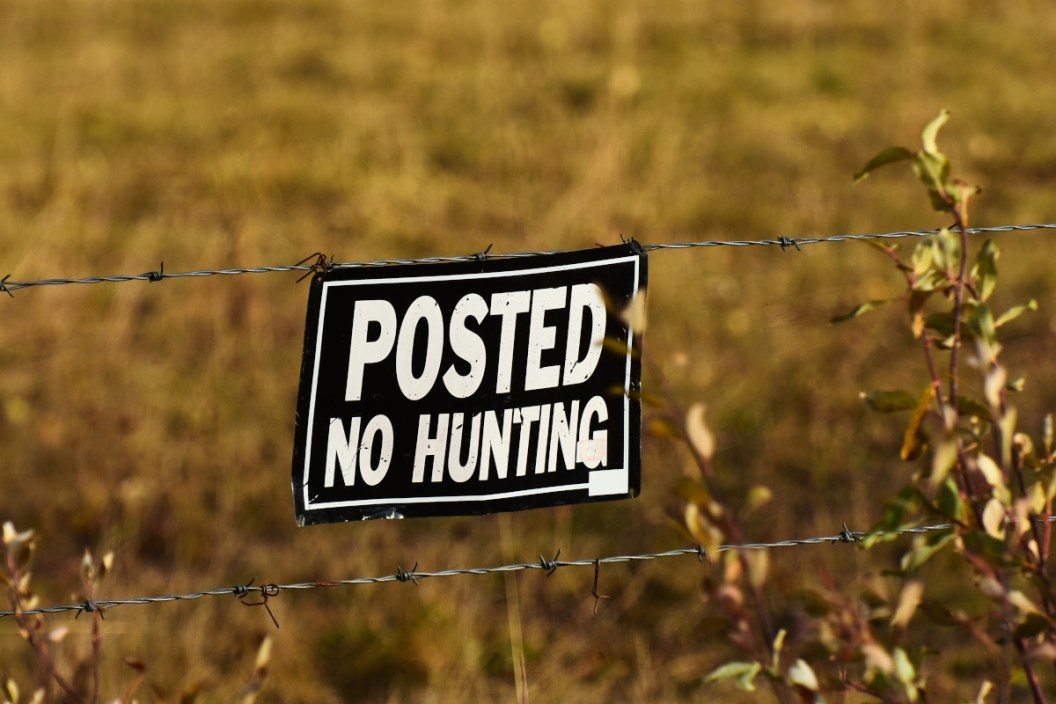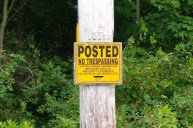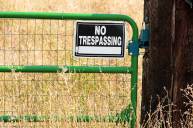Here are some things to keep in mind when asking for permission to hunt.
Finding a place to hunt can be a real challenge for any deer hunter if you don't own your own land. Your options are public land, which is often overrun, an expensive lease, or getting permission on someone else's land.
That last one would be ideal for most of us, but it is also the most difficult. Most private landowners aren't quick to open private property up to a stranger, especially if they've had trespassing issues in the past.
Here are three things to keep in mind that should help you gain access to a new hunting ground this season.
Make a good first impression
If you're going to start looking for some new deer hunting land, I hope you're already putting in the work.
Summer is the perfect time to start looking for a place to hunt private property. You don't want to wait until a week before the season starts and then surprise the landowner at home for the first time. In most cases, you can forget about hunting access.
Remember, in general, people don't like strangers showing up at their house unannounced. It's a good idea to make a phone call first and then arrange a first meeting face-to-face. You'll have a much better chance of gaining hunting permission when the property owner is expecting you.
In that first meeting, don't ask for access to all 10,000 acres of a farmer's land right off the bat. You can probably earn that kind of access over time, but you've got to earn it. Instead, you might just ask for bowhunting access to a couple of fields you've noticed have deer feeding.
Another way to gain some goodwill is to help the landowner out. Most of the time you're going to be dealing with farmers. There is NO shortage of work to be done on a farm.
Maybe you've run into an elderly, widowed woman who is disabled and has no other family members to take care of her yard work anymore. Offer to help her out.
Keep in mind you're not just trying to gain access to a new piece of property to bowhunt, you're trying to build a trustworthy relationship, and hopefully, a long-term friendship here. In some cases it helps to be professional. You may be able to gain access to hunt private land casually in some instances, but do not assume it is a given just because you are both country folk. Whether they say yes or not, it cannot hurt to give them a business card or a sheet of paper with your phone number and other contact information. You never know, they may change their mind in the future. Also, it may offer a little peace of mind for a landowner who says yes to know exactly who is on their land and how they can get a hold of you.
What the landowner says is the law
When you do gain access to private ground, it is vital to remember that you are the landowner's GUEST. That basically means whatever they say is the rule of the land.
If they only give you access for a select portion of the hunting season, honor those days and don't show up when they don't want you out there.
If you're setting them up, let the landowners know where every treestand and trail camera is, and make clear any times you expect to access the land to check on such things.
Speaking of trail cameras, don't forget to share the images you capture with the landowners. This goes back to building that friendship, and creating a worthwhile reason for you being there.
Make sure you make it known when asking permission that you'll abide by any and all rules they set for you. That includes rules on when to shoot and when not to shoot. Some farmers may not care, but others may want you to shoot every deer you see because they're destroying their crops. If you're okay with that, you'll probably quickly gain a new hunting property. Know the property boundaries and respect them.
Some landowners only want you to pursue one kind of animal. Or, they may have restrictions on antler size or species sex. Others may only give permission to bowhunters only, in which case you'd better start practicing with your stick and string! No matter what, breaking one of these landowner rules is a good way to ruin your access opportunity, and flat out contemptuous.
Being respectful of the landowner and his or her wishes will go a long way towards you maintaining hunting rights on a particular property for years to come.
Offer to share the bounty
An easy way to maintain a good relationship with the landowner and retain your access to private land is by simply sharing in the harvests. This should be something you offer up right away. I know people who go so far as to give a whole deer or two to the landowner as a Christmas gift. It's a great way to show your thanks.
Some farmers are far too busy to hunt, so some free organic meat can be a great way to sweeten the deal.
I would even say to go so far as either having the deer professionally processed or to do it yourself before handing it over. It's great if the landowner can just throw some whitetail backstraps right on their grill with no work on their part. You might even offer to invite them over for a summer BBQ or late winter dinner to enjoy a feast of the animals you harvested on their land.
Taking an animal to share with the landowner can be a bit of work and might add costs in processing fees, but it's worth it to have access to a quality piece of private land.
As an alternative, if the landowner isn't interested in venison, find another way to give back. In the video above, this guy brings 90 free beers to the landowner's house as a thank you. Who could argue against that?!
Whatever you do, don't just hunt and say thank you. Do something a little extra for the landowners that make your successful hunt happen this year. You'll both be better off!
For more outdoor content from Travis Smola, be sure to follow him on Twitter and check out his Geocaching and Outdoors with Travis YouTube channels.
NEXT: AN OUTSIDER'S LOOK AT MICHIGAN DEER HUNTING
WATCH





